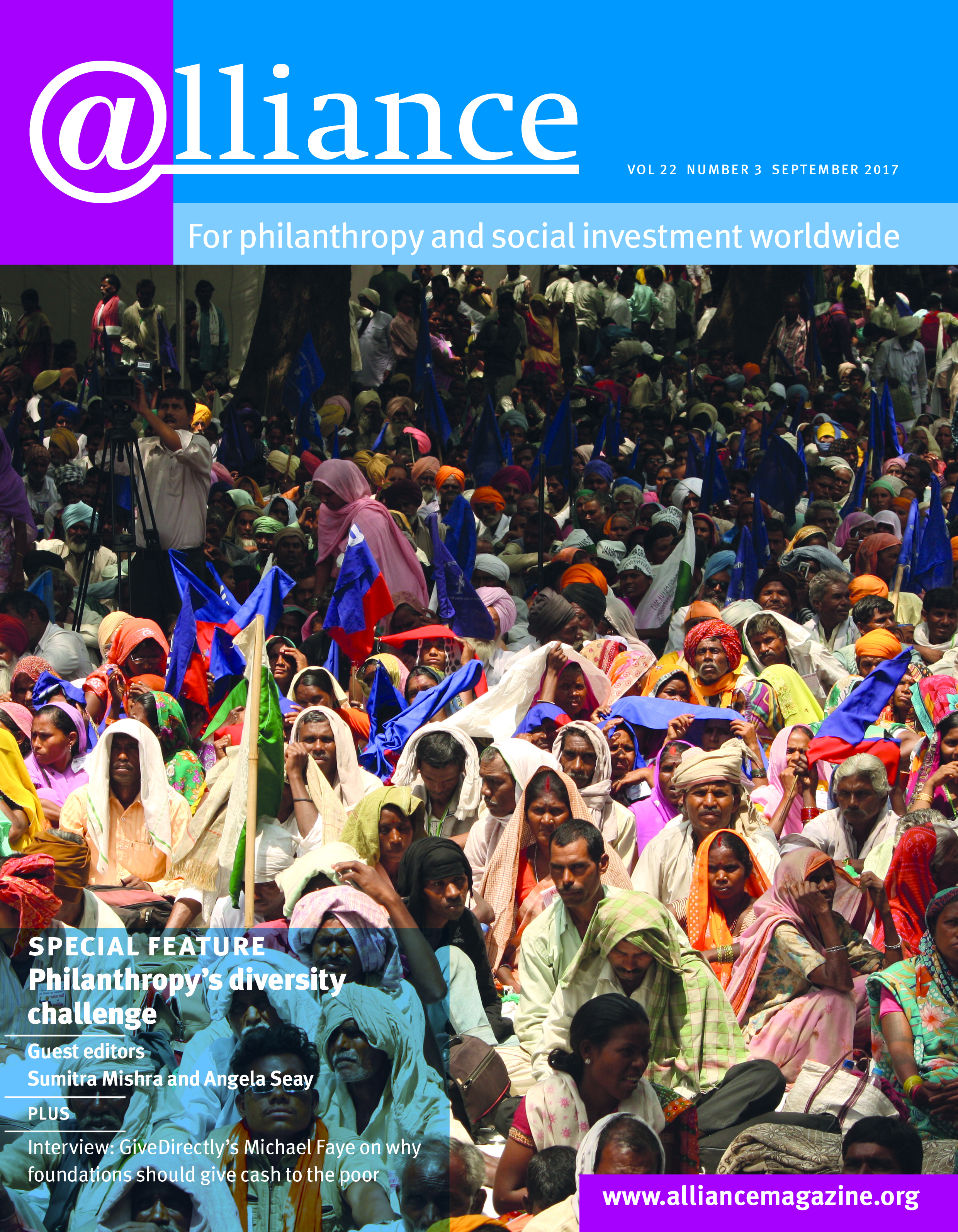‘The glass ceiling for black achievement in the management of charities and trusts is finally beginning to crack open.’ That’s what Brenda Kirsch wrote in an article for the UK Association of Charitable Foundations’ (ACF) house magazine about my appointment in March 1998 as clerk to the trustees of City Parochial Foundation (CPF), now called Trust for London.
However, when I undertook a rough survey of the top ten members of ACF from their respective websites, I was not surprised to see that there were very few trustees and no chief executives from black and minority ethnic (BAME) backgrounds – it is what I see at gatherings of leaders of philanthropic organizations.
 While we may have made some progress – though nowhere near enough – on some dimensions of diversity such as gender and possibly age, we have clearly not done so on race or class.
While we may have made some progress – though nowhere near enough – on some dimensions of diversity such as gender and possibly age, we have clearly not done so on race or class.
It would be wrong to surmise too much from my informal survey. Perhaps that’s the starting point in addressing the issue of why after 20 years, the ceiling remains stubbornly intact.
We need good, reliable data from an independent source, on diversity within trusts and foundations so that we can hold a mirror to ourselves. Are we reflecting the people and communities we fund and work with?
The intention to have a diverse governance and senior leadership team is clearly there in the sector but it seems we lack the commitment to bring about change.
We need good, reliable data from an independent source, on diversity within trusts and foundations so that we can hold a mirror to ourselves.
The case for diversity on governance and leadership teams has been made on numerous occasions and is generally accepted – the economic benefits, the equality, social justice, fairness and social and moral responsibility etc have been debated ad nauseam.
Ironically, a number of reports on the benefits and the means of increasing the diversity of governance and leadership teams have been funded by charitable trusts and foundations!
Thinking differently about difference; the value of diversity in the social sector, written by recruitment agency Green Park in partnership with Addaction, is worth reading.
Diversity is about sharing power and consciously or unconsciously, the sector has resisted doing that.
Perhaps we are keen to appoint in our own image, reflecting our own class, educational background, ethnicity and values because it feels safer. A recent report by Getting on Board states: ‘90 per cent of charities say they recruit most of their trustees through word-of-mouth and existing networks.’
Diversity is about sharing power and consciously or unconsciously, the sector has resisted doing that. On the occasions when we do look to recruit externally, we tend to work with head-hunting agencies, the staff of which more often than not reflect our own image.
The head-hunters tend to fish in the same pool, and come up with, essentially, the same group of potential candidates for trustee and leadership team positions.
I wonder what would happen if we decided to change or add to the list of qualities we expect in applicants for trustee or leadership positions – from the usual ones around education, attainment, experience, extracurricular interests, etc, often reflecting our own preferences, biases, values and circumstances – to ones that reflected more closely the circumstances or experiences of people who ultimately are the beneficiaries of our grantmaking?
What if we insisted that candidates had, for instance, direct experience of poverty; or of being the sole provider of care to a dependent?
A survey would be a good starting point to address the issue of diversity, especially on race and class. We also need to look at our recruitment practices and procedures, including anonymous CVs at the application stage; and thirdly, to ask some searching questions about our commitment to share power and to help make systemic changes.
Unless we address the huge power imbalance between who decides and who benefits, we are in danger of perpetuating the very things we are trying to eradicate.
Bharat Mehta is chief executive, Trust for London. Email: bmehta@trustforlondon.org.uk







Comments (0)